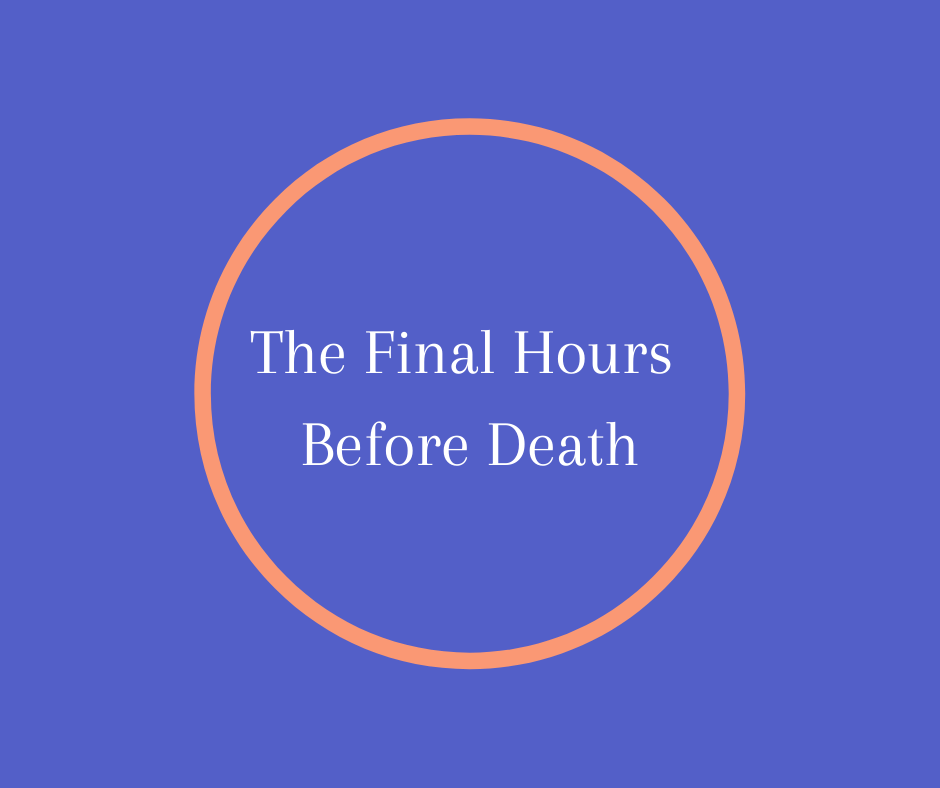I just read an article on the Independent.com website, http://www.independent.co.uk/life-style/health-and-families/health-news/dying-patients-should-be-offered-water-in-their-final-hours-say-new-guidelines-a6774816.html and am saddened by the impression that is given. The impression is that water is necessary in the days to hours before death. In reading the entire article you can see a suggestion that guidelines be established for end of life care but they didn't really show us the guidelines.
I was distressed by the headline: ”Dying patients should be offered water in their final hours”. If someone stops there and does not read the article they will come away with a dramatic headline, possibly believe it, and then push fluids on the next encounter they have with a person that is dying--a friend, family member or a patient.
Here is what I have learned from my work with hundreds of people who were dying: always, always offer and give food and water if the dying person expresses an interest in wanting food and/or water. I have also learned that there is absolutely no reason to RESTRICT or WITHHOLD water (which the article implies is happening) unless the person is non-responsive and/or at severe risk of choking due to swallowing issues.
Actually as death comes closer we tend to see that families have a hard time with the fact that the patient does NOT want to eat or drink. Not wanting to eat or drink becomes the issue that causes the most concern not that the patient wants food or water and shouldn’t have it.
In the natural dying process the appetite diminishes as does the want for fluids. The patient in the days to hours before death is generally not responsive and not interacting with the environment they are in (unlike in the movies) and it seems very odd to me that a person at that time is going to say they want a drink of water or even express thirst. I am more inclined to think the watchers of the person dying may express concern from their lack of knowledge about the dying process. We equate food and water with living and as we watch our special person approach death our thoughts turn to nourishment and hydration as a possible way to “fix” them.
The article mentions that “maybe an IV drip" needs to be administered for hydration. Again this is faulty information given by someone who clearly does not understand the natural dying process. Hydrating the person literally creates more discomfort. An IV means needles and restrictive tubing, but it is more than that. The body is shutting down, the kidneys are not working properly so fluid builds up in the lungs and tissues causing congestion and edema. This causes pain and more difficulty breathing. There is less oxygen exchange than if the congestion were not present.
What most people don't know is that in the normal dying process eating and drinking gradually decreases. Over a period of months before death actually occurs the body gradually stops eating. In the week to days before death their fluid intake has decreased drastically and they are eating little to nothing.
Dehydration is part of the natural way a person dies. It is a comfortable way to die. A person just goes to sleep. How does this happen? Dehydration increases calcium in the blood stream and when the calcium reaches a high enough level a person dies. If the body can't be fixed and is itself dying why interfere with this natural process by forcing fluids?
The article, which originated in the UK, mentions that guidelines need to be set in place regarding appropriate end of life care. I certainly agree that guidelines for end of life care can benefit non-hospice (and sometimes even hospice) professionals. I just hope the guidelines are developed by someone who understands the normal, natural dying process and not someone with a strong medical model. The medical model tends to operate from the prospective of "because we can, we should". End of life care is not like caring for someone who is going to get better. Most people don't know this, even medical professionals.
Something more... about Forcing Fluids At End Of Life...
One of the reasons I wrote ALWAYS OFFER, NEVER FORCE: Food At End of Life, was to educate families and professionals on the normal, natural way that eating slows during the dying process.








7 comments